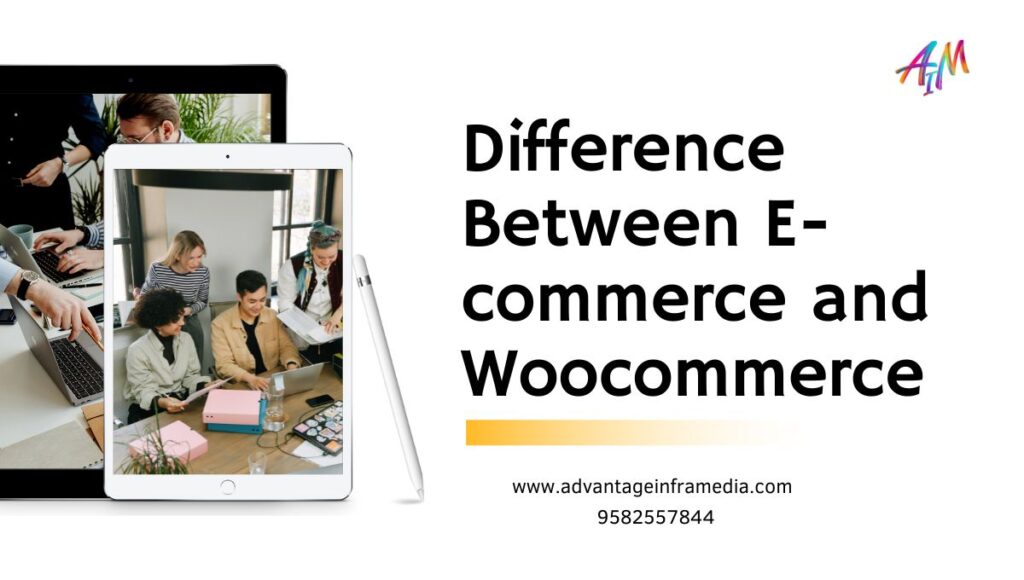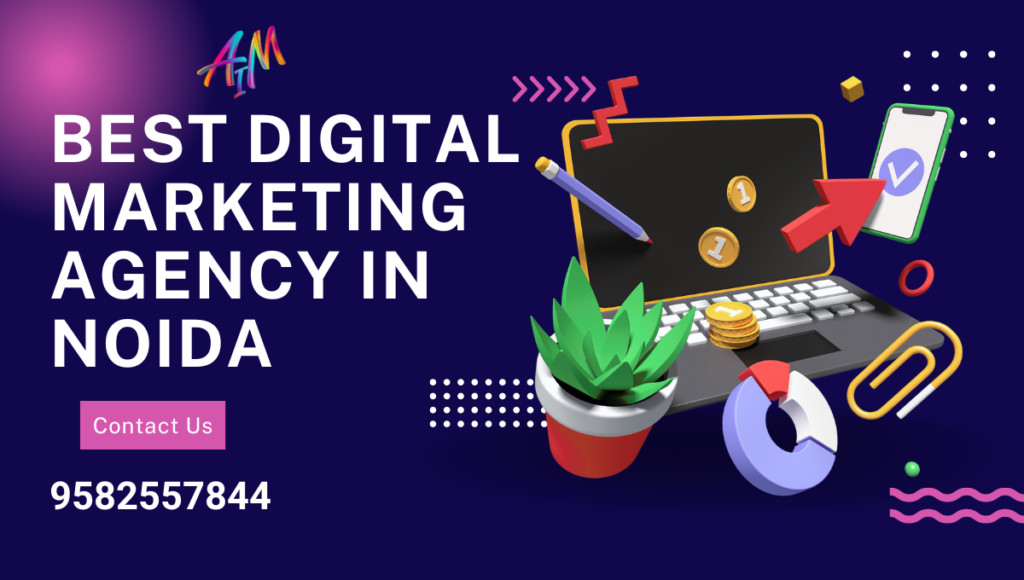Introduction
-
Difference Between E-commerce and Woocommerce
-
Introduction to WordPress as a content management system (CMS)
-
Introduction to eCommerce as a platform for online selling
-
The significance of both platforms in the digital world (Difference Between E-commerce and Woocommerce)
- Importance of Understanding the Difference
- Why knowing the difference is crucial for businesses and individuals
- Impact on business decisions, growth, and user experience
- Common misconceptions and the need for clarity
What is WordPress?
- Definition and Purpose
- Overview of WordPress as a CMS
- History and evolution of WordPress
- WordPress’s role in democratizing web publishing
- WordPress.com vs. WordPress.org: Key Differences
- Key Features of WordPress
- Customization through themes and plugins
- Content creation and management
- SEO capabilities and built-in tools
- Community support, forums, and resources
- Multilingual support and global reach
- Integrations with third-party services and APIs
- Advanced features: Multisite, REST API, and more (Difference Between E-commerce and Woocommerce)
- Use Cases for WordPress
- Blogs and personal websites
- Business websites and portfolios
- News sites and online magazines
- Membership sites and online communities
- Educational platforms and online courses
- Nonprofit and government websites
What is eCommerce?
- Definition and Purpose
- Overview of eCommerce platforms
- Different types of eCommerce (B2B, B2C, C2C)
- The evolution of eCommerce and its impact on global trade
- The importance of eCommerce in the modern economy (Difference Between E-commerce and Woocommerce)
- Key Features of eCommerce Platforms
- Product management and cataloging
- Shopping cart and checkout process
- Payment gateway integration
- Shipping and inventory management
- Customer relationship management (CRM)
- Analytics and reporting tools
- Marketing tools and automation
- Multi-channel selling: Integration with marketplaces and social media
- Popular eCommerce Platforms
- Shopify, WooCommerce, Magento, BigCommerce, etc.
- In-depth comparison of different eCommerce platforms (Difference Between E-commerce and Woocommerce)
- Advantages and limitations of each platform
- Industry-specific eCommerce solutions
Comparing WordPress and eCommerce
- Primary Purpose
- WordPress as a CMS vs. eCommerce as a selling platform
- How WordPress can be extended to include eCommerce functionality (e.g., WooCommerce plugin)
- eCommerce platforms’ focus on online transactions and sales optimization
- The role of content in driving eCommerce success
- Functionality and Flexibility
- WordPress’s emphasis on content management vs. eCommerce’s emphasis on sales and transactions
- How both platforms can be adapted for different business needs
- Examples of successful WordPress and eCommerce websites
- The balance between aesthetics and functionality (Difference Between E-commerce and Woocommerce)
- Customization and Scalability
- WordPress themes and plugins vs. eCommerce platform-specific extensions
- Scalability considerations for WordPress sites vs. eCommerce sites
- Challenges in scaling WordPress for large eCommerce operations
- Scalability solutions in dedicated eCommerce platforms
- Custom development vs. out-of-the-box solutions
- User Experience
- User experience design in WordPress vs. eCommerce platforms (Difference Between E-commerce and Woocommerce)
- How each platform addresses the needs of different types of users
- Customization options for improving user experience in both platforms
- Case studies of user experience success stories
- The importance of mobile responsiveness and accessibility
- Security and Maintenance
- Security concerns in WordPress vs. eCommerce platforms
- Maintenance, updates, and the importance of keeping the platform secure
- Common security vulnerabilities and how they are addressed in both platforms
- Best practices for securing WordPress and eCommerce sites
- The role of SSL, PCI compliance, and other security measures (Difference Between E-commerce and Woocommerce)
When to Choose WordPress
- Best Scenarios for Using WordPress
- Content-driven websites
- Websites with minimal eCommerce needs
- Blogs, portfolios, and informational websites
- Nonprofits, educational institutions, and government agencies
- Advantages of WordPress
- Ease of use and quick setup
- Flexibility and extensive customization options
- Large community and support
- Cost-effectiveness and availability of free resources
- Ability to grow and adapt with additional features and plugins (Difference Between E-commerce and Woocommerce)
- Integration with various marketing and analytics tools
- SEO-friendly structure and tools
- Limitations of WordPress
- Limitations in handling large-scale eCommerce
- Potential performance issues with heavy customization
- Security concerns if not properly maintained
- The complexity of managing a WordPress site with extensive plugins
- The need for regular updates and technical maintenance
When to Choose an eCommerce Platform
- Best Scenarios for Using eCommerce Platforms
- Businesses focused on online selling
- Stores with complex product catalogs and inventory management needs
- Enterprises needing advanced eCommerce features and scalability (Difference Between E-commerce and Woocommerce)
- Niche markets and industry-specific needs
- Advantages of Dedicated eCommerce Platforms
- Built-in eCommerce features optimized for sales
- Robust tools for managing inventory, orders, and customer relationships
- Advanced marketing and SEO tools designed for eCommerce success
- Better suited for scaling online stores with high traffic and sales volume
- Enhanced security features tailored for online transactions
- Multi-channel selling capabilities and integrations
- Support for global sales, taxes, and shipping
- Limitations of eCommerce Platforms
- Limited content management capabilities compared to WordPress
- Potentially higher costs, especially with premium features
- Less flexibility in terms of design and customization
- Dependence on platform-specific tools and features
- The challenge of migrating data and content between platforms (Difference Between E-commerce and Woocommerce)
Hybrid Solutions: WordPress with eCommerce Integration
- Using WordPress with eCommerce Plugins
- Overview of WooCommerce, Easy Digital Downloads, etc.
- Benefits of integrating eCommerce with WordPress
- Flexibility in combining content and commerce
- How WordPress’s strengths complement eCommerce functionality
- Customization possibilities with WordPress eCommerce plugins
- Challenges and Considerations
- Balancing content and commerce for optimal user experience
- Performance and security considerations when integrating eCommerce into WordPress (Difference Between E-commerce and Woocommerce)
- Technical challenges and potential solutions
- Managing product catalogs, inventory, and orders within WordPress
- Examples of successful hybrid WordPress-eCommerce websites
- Cost Considerations
- Understanding the costs involved in a hybrid solution
- Hosting, maintenance, and plugin costs
- The total cost of ownership for WordPress vs. eCommerce platforms
The Future of WordPress and eCommerce
- Trends in WordPress Development
- Ongoing innovations in WordPress (Difference Between E-commerce and Woocommerce)
- How WordPress is evolving to meet new challenges in web publishing
- The role of Gutenberg and block-based editing in the future of WordPress
- The impact of AI, automation, and new technologies on WordPress
- Trends in eCommerce
- Emerging trends in eCommerce platforms
- The rise of mobile commerce and omnichannel strategies
- How eCommerce platforms are adapting to new consumer behaviors
- Predictions for the future of eCommerce and online shopping
- The role of AI, AR, and VR in the future of eCommerce
- The Convergence of Content and Commerce
- How content and commerce are becoming increasingly integrated
- The importance of a holistic approach to digital presence
- Strategies for leveraging both WordPress and eCommerce platforms for business growth
- The potential for new hybrid models that combine the best of both worlds (Difference Between E-commerce and Woocommerce)
In-Depth Analysis of WordPress as a CMS
- Customization Through Themes
- Exploration of popular WordPress themes like Astra, Divi, and GeneratePress
- How themes impact the design and user experience of a website
- The importance of selecting the right theme based on the website’s purpose
- Case studies of businesses that have leveraged specific themes for success
- Power of Plugins
- Detailed analysis of essential plugins like Yoast SEO, Elementor, and WPForms
- How plugins extend WordPress functionality beyond a basic CMS
- Discussion on premium vs. free plugins and their impact on website performance
- Strategies for managing and optimizing plugin use to avoid conflicts and slow performance
- Content Creation and Management
- Advanced content management techniques using the Gutenberg editor (Difference Between E-commerce and Woocommerce)
- The role of categories, tags, and taxonomies in organizing content
- How to create a content strategy that aligns with SEO goals in WordPress
- The use of custom post types for unique content needs
Advanced eCommerce Features and Innovations
- Personalization in eCommerce
- The importance of personalized shopping experiences for increasing conversions
- How eCommerce platforms use AI and machine learning to offer personalized product recommendations
- Examples of businesses that have successfully implemented personalization strategies
- The role of customer data and segmentation in delivering personalized experiences
- Omnichannel Retailing
- Explanation of omnichannel retailing and its significance in modern eCommerce
- How eCommerce platforms enable seamless integration across multiple channels (e.g., physical stores, online stores, social media)
- The challenges and benefits of implementing an omnichannel strategy
- Case studies of companies excelling in omnichannel retailing
- Headless Commerce
- Introduction to headless commerce and how it decouples the front-end and back-end
- Benefits of headless commerce for businesses seeking more control and flexibility
- How headless commerce can be integrated with WordPress for a hybrid solution
- Examples of businesses using headless commerce to drive innovation
Security and Compliance in WordPress and eCommerce
- WordPress Security Best Practices
- Detailed discussion on WordPress security measures, including regular updates, strong passwords, and two-factor authentication
- Importance of using security plugins like Wordfence or Sucuri
- Strategies for securing WordPress databases and files
- The role of SSL certificates in ensuring secure data transmission
- eCommerce Security Concerns
- Common security threats faced by eCommerce platforms (e.g., phishing, DDoS attacks, credit card fraud)
- Compliance with regulations like PCI DSS, GDPR, and CCPA in eCommerce
- The role of payment gateway security features (e.g., tokenization, encryption)
- How to manage customer trust and ensure secure transactions (Difference Between E-commerce and Woocommerce)
- Handling Data Breaches
- Steps to take in the event of a data breach in WordPress or an eCommerce platform
- The importance of a data breach response plan
- How to communicate with customers and stakeholders following a breach
- Legal implications and the importance of compliance in preventing breaches
Case Studies and Real-World Examples
- Successful WordPress Websites
- Detailed case studies of well-known websites powered by WordPress (e.g., TechCrunch, The New Yorker, BBC America)
- Analysis of how these websites leverage WordPress’s features to achieve their goals
- Lessons learned from their successes and challenges
- Successful eCommerce Businesses
- Case studies of successful eCommerce businesses using platforms like Shopify, WooCommerce, or Magento (e.g., Gymshark, Warby Parker, Kylie Cosmetics)
- How these businesses overcame challenges in scaling, customization, and security
- Insights into their marketing and sales strategies
- Comparative Analysis of Hybrid Solutions
- Case studies of businesses that use both WordPress and an eCommerce platform
- How they balance content and commerce to create a seamless user experience (Difference Between E-commerce and Woocommerce)
- The benefits and challenges of maintaining a hybrid solution
- Real-world examples of how hybrid solutions drive business growth
Community and Support
- WordPress Community and Ecosystem
- The role of the WordPress community in supporting users, developers, and businesses
- Overview of WordCamps, meetups, and online forums as resources for WordPress users
- How to contribute to the WordPress community as a developer or user
- The importance of staying updated with the latest WordPress developments
- eCommerce Platform Support
- Comparison of support options provided by different eCommerce platforms (e.g., Shopify’s 24/7 support, WooCommerce’s community-driven support)
- The role of third-party developers and agencies in offering eCommerce solutions
- How to access and leverage support for customizing and scaling an eCommerce site
- The importance of choosing a platform with reliable and accessible support (Difference Between E-commerce and Woocommerce)
Future Trends and Predictions
- The Future of WordPress
- Predictions for the future of WordPress, including potential new features and updates
- How WordPress is evolving to meet the needs of modern web users (Difference Between E-commerce and Woocommerce)
- The impact of AI, machine learning, and automation on WordPress development
- The role of the WordPress community in shaping the platform’s future
- The Future of eCommerce
- Trends shaping the future of eCommerce, including mobile commerce, voice commerce, and social commerce
- How eCommerce platforms are adapting to changing consumer behaviors and technological advancements
- The rise of AI-driven eCommerce solutions and their impact on the industry (Difference Between E-commerce and Woocommerce)
- Predictions for the future of online shopping and its impact on global commerce
Comprehensive Comparison Table
- Comparison Table
- Create a detailed comparison table that summarizes the differences between WordPress and eCommerce platforms
- Include categories such as customization, scalability, security, cost, user experience, and support
- Highlight key features and functionalities for quick reference
- Provide recommendations based on specific business needs and goals
Conclusion
- Final Thoughts and Recommendations
- Summarize the key points discussed in the blog
- Offer final recommendations on choosing between WordPress and an eCommerce platform based on individual or business needs
- Emphasize the importance of understanding the unique strengths and limitations of each platform
- Encourage readers to consider long-term goals, budget, and scalability when making a decision
Conclusion
- Summary of Key Differences
- Recap of the main differences between WordPress and eCommerce platforms (Difference Between E-commerce and Woocommerce)
- Considerations for choosing the right platform based on business goals
- The importance of understanding specific needs, budget, and long-term vision
- Final Thoughts
- Guidance on making an informed decision between WordPress and a dedicated eCommerce platform
- Encouragement to assess specific needs, budget, and long-term goals before committing to a platform
- The potential for future growth and adaptation with the right choice (Difference Between E-commerce and Woocommerce)
- The role of continuous learning and adaptation in the digital landscape




